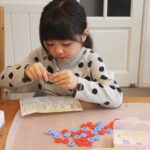Children with high intelligence tend to exhibit four types of “mischievous” behaviors that parents should not mistake for bad habits.
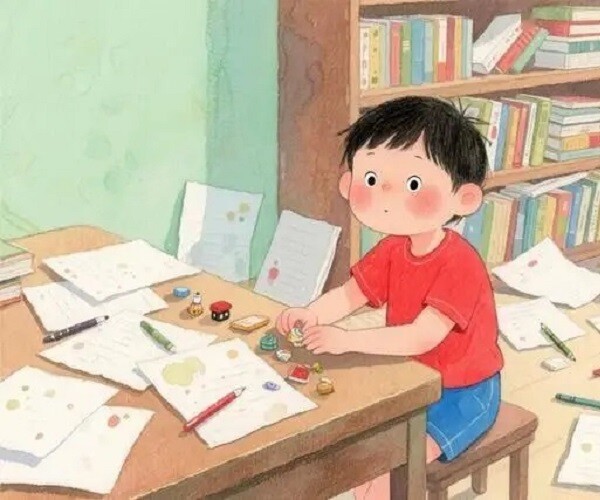

Often tuning out what parents say
There was a time when Otaru’s parents thought their child was too “mischievous” and didn’t pay attention to their calls.
Otaru would always act like he didn’t hear them whenever they called out to him. His parents felt that he was doing it on purpose.
However, they later discovered that he wasn’t doing it on purpose. They wondered if he had a hearing problem.
So, they took Otaru to the hospital for a check-up, and the results showed that his hearing was perfectly normal.
If he wasn’t doing it on purpose and had no hearing issues, why did he sometimes ignore their calls?
In fact, it was because of Otaru’s intense focus, a sign of his developing brain power.
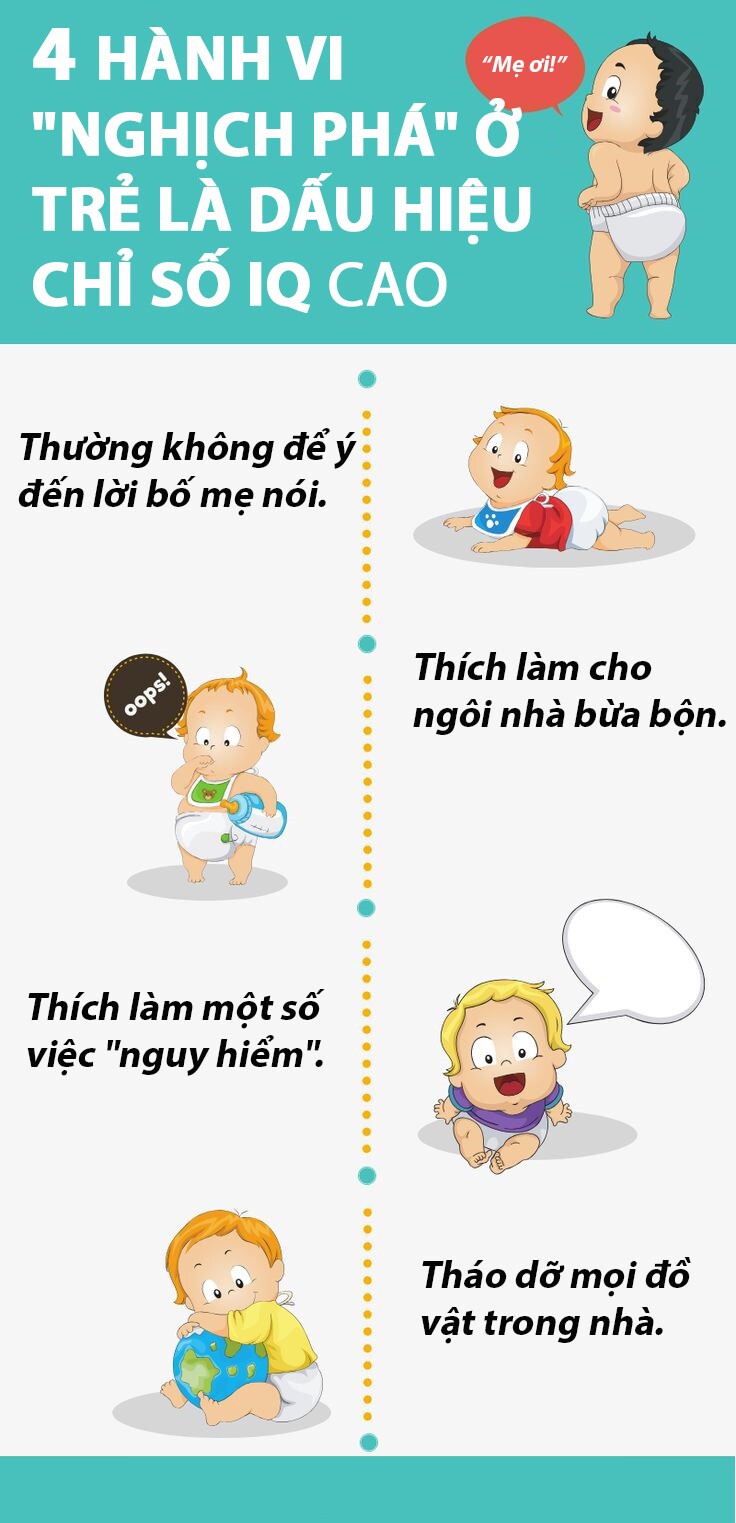
Image source: Pinterest.
Why do focused children “tune out” their parents’ calls?
When children are engaged in an activity, their thoughts and senses are focused on that task, causing their awareness and reaction to their surroundings to weaken.
For example, if a child is deeply thinking about something and their parent calls them for dinner, they may temporarily not respond as they don’t want to interrupt their train of thought. So, sometimes, children don’t listen to their parents because they have the ability to focus intensely.
If you want to develop your child’s focusing ability, keep the following in mind:
Avoid interrupting your child when they’re engaged in an activity
Some well-intended behaviors can also be counterproductive. For instance, when your child is doing their homework, refrain from offering them tea or water or asking how it’s going. These behaviors, though seeming to show care, actually disrupt your child’s focus.

Children may space out and focus intensely.
When your child is focused, help create a conducive environment
For instance, if they’re reading a book, maintain a quiet atmosphere with appropriate lighting.
Develop your child’s focusing ability in a reasonable manner
When it comes to developing focus, employ age-appropriate methods. For younger children, use picture books, Lego blocks, or paper folding, which are easy to grasp and not boring.
For older children, chess, checkers, or toy car repair can be effective and beneficial.

Liking to make a mess at home
“Oh, Xiao Bao is so naughty. He never keeps the house tidy…” Xiao Bao’s mother expressed her helplessness.
However, this helplessness is understandable, as no matter how much she tidies up, Xiao Bao always creates a mess.
Sometimes, he throws his toys all over the floor, tosses chairs and cushions around, and empties drawers…
His mother scolds him for this, but Xiao Bao remains stubborn and continues to create chaos in the house.
From a brain development perspective, it’s because Xiao Bao has a strong desire to explore, which is a good thing and a sign of an extraordinary brain.
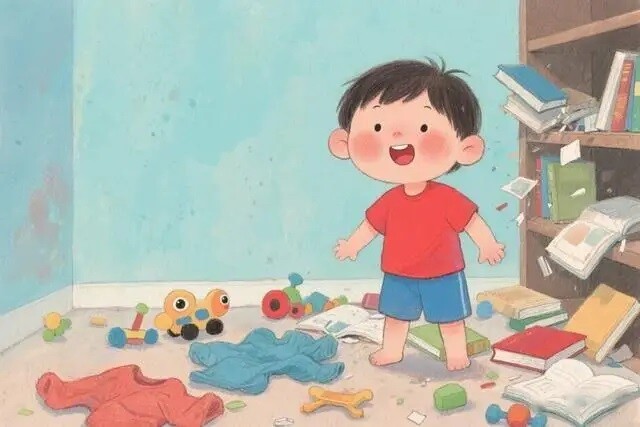
Liking to make a mess at home.
Why do children with a strong desire to explore create messes at home?
Children are particularly interested in places they haven’t been or things they don’t know. So, they’ll rummage through the house to increase their awareness and discover the “unknown secrets” of the world.
However, since they haven’t formed good cleaning habits or understood the concept of tidiness, they don’t put things back in their original places after “exploring,” resulting in a messy house.
How should parents react when their child creates a mess at home?
Scolding or beating will reduce their desire to explore and create a wrong perception. The child will then avoid unknown things, which is not conducive to their development.
So, when you see your child rummaging through things, don’t immediately scold them. Instead, focus on cultivating cleaning habits, forming the concept of tidiness, and teaching them that exploration is good but that they should also put things back in their original places.
When instilling tidiness habits and concepts, parents should also guide and demonstrate, helping children form these habits and concepts quickly and accurately.

Liking to do some “dangerous” things
We often see reports of children’s dangerous behaviors on TV, such as sticking their fingers into electrical sockets, resulting in electric shocks and burns. Some children may also chew on dirty or even toxic objects, or jump from closets…
Regarding the reason for these dangerous behaviors, many parents believe it’s because their children are naughty, so they scold or beat them to prevent them from engaging in such activities.
But are children doing these dangerous things because they’re naughty? According to experts, children in this stage have a strong capacity for action, curiosity, and rapid brain development.

Liking to do some “dangerous” things.
Why do children with a strong capacity for action do many dangerous things?
In fact, children not only do dangerous things but also choose them selectively.
They lack related knowledge and don’t know that certain things are dangerous, so they try them.
What should parents do if their child likes to do dangerous things?
Children don’t know that their actions are dangerous mainly because of their limited awareness. So, parents should educate them about basic safety knowledge regarding electricity, water, food safety, etc.
Parents should also use their “expert power” appropriately, such as showing them popular science picture books and cartoons, listening to lectures, playing related games, and engaging in related activities…
To ensure your child’s safety, proactively limit dangerous elements in the home. For instance, use safety sockets to prevent children from inserting foreign objects into them.

Dismantling everything in the house
Having a child who likes to “destroy” things at home is a headache for many parents.
In fact, many parents have reported that their children don’t listen, like to cause trouble, and break things in the house, such as remote controls and alarm clocks…
In reality, the behavior of dismantling objects is a manifestation of curiosity.
Although this behavior can satisfy children’s curiosity, it also affects their safety.
So, parents should know how to intervene appropriately.
– Don’t stop them to avoid destroying their curiosity and affecting their desire to acquire knowledge.
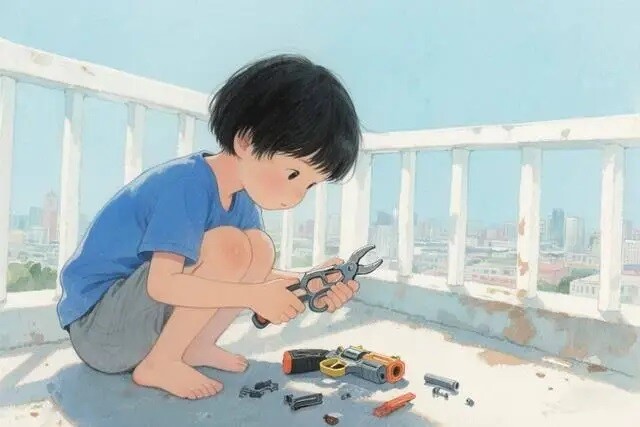
Dismantling everything in the house.
– For objects that can be restored to their original state, supervise or guide your child to dismantle them correctly. After satisfying their curiosity, guide them on how to reassemble the object. This helps children understand the structure and principles of objects better, avoiding economic losses and providing more benefits.
– For objects that cannot be dismantled, use other methods to satisfy their curiosity, such as showing videos on how things are made, allowing them to gain knowledge without dismantling.
When you notice your child’s “bad habits,” don’t worry. Instead, try to understand why they’re doing it. Behind these “troublesome” habits may be a curious and exploring mind. These “bad habits” that worry parents could be “signals” of an extraordinary brain.


























